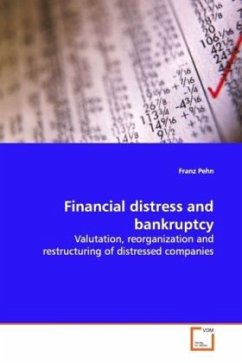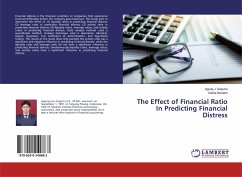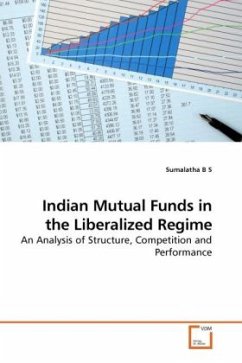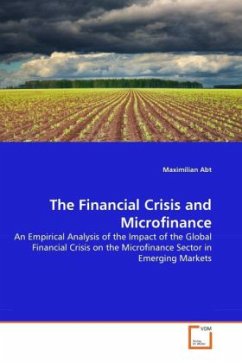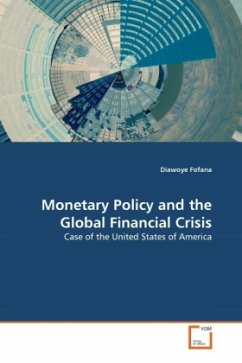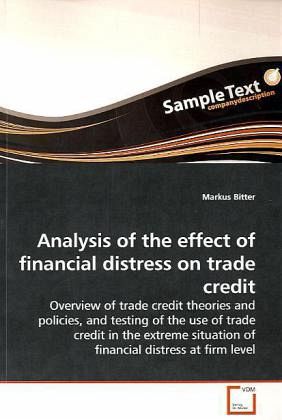
Analysis of the effect of financial distress on trade credit
Overview of trade credit theories and policies, and testing of the use of trade credit in the extreme situation of financial distress at firm level
Versandkostenfrei!
Versandfertig in 6-10 Tagen
39,99 €
inkl. MwSt.

PAYBACK Punkte
20 °P sammeln!
Trade credit financing can entail several advantages such as stimulating sales and investments as well as the possibility of reducing information asymmetries. However, it also involves some risks and costs caused by financial distress and default. The literature shows that trade credit provides relatively more financing when alternative sources like bank credit are exhausted. By the use of panel data from European Monetary Union firms over a period of eleven years, it is shown that financially distressed European Monetary Union firms substitute equity with trade credit but that they surprising...
Trade credit financing can entail several advantages such as stimulating sales and investments as well as the possibility of reducing information asymmetries. However, it also involves some risks and costs caused by financial distress and default. The literature shows that trade credit provides relatively more financing when alternative sources like bank credit are exhausted. By the use of panel data from European Monetary Union firms over a period of eleven years, it is shown that financially distressed European Monetary Union firms substitute equity with trade credit but that they surprisingly reduce trade credit compared to long term debt. Furthermore, the results suggest that large and small firms use more trade credit during financial distress but there is no clear tendency whether smaller firms use more than larger ones.



